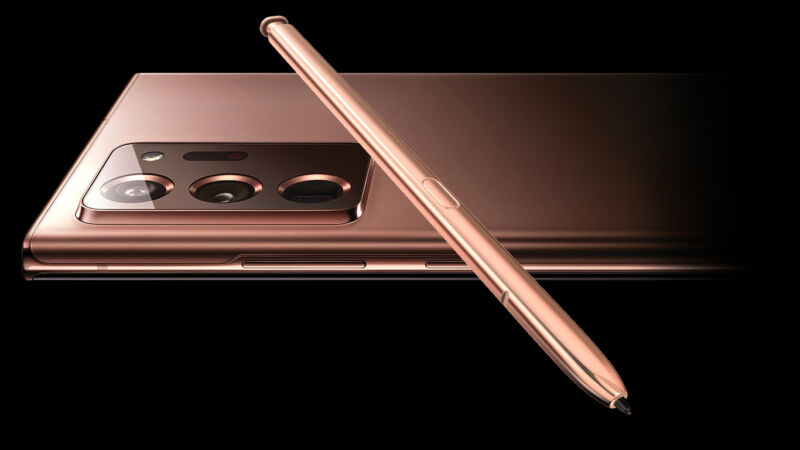Years after Google and Apple, Samsung finally gets eSIM working in the US

Enlarge (credit: Samsung)
Samsung is finally starting to support eSIM in the US. XDA Developers reports the first working combo is the Galaxy Note 20 and Note 20 Ultra on T-Mobile. You'll need an update to enable the feature, but then you'll be able to throw off the shackles of your ancient plastic SIM card. Samsung flagships began shipping with eSIM starting with the Galaxy S20 in March 2020, but it never got US carrier support. With T-Mobile now supporting the Note 20, hopefully other carriers and models will follow suit.
Samsung has been pretty slow on the eSIM uptake overall. The world's first eSIM phone was the Google Pixel 2, which launched in 2017 and was quickly supported on Google Fi. Apple started supporting eSIM with the iPhone XS in 2018, and carriers quickly enabled support.
eSIM removes the need for plastic, physical SIM cards that link your phone to your phone bill and get you up and running on the cellular network. Physical SIM cards are one of the many ways carriers cling to outdated technology. In order to be identified for service, carriers demand we reserve space in our phones for a 12x9 mm plastic card that holds 256KB of information. This might have sounded like a good idea in the '90s when carriers cooked up the SIM card standard. But today, when a similarly sized (15x11 mm) MicroSD card can hold 1TB of data-or about 4.2 million times more data-SIM cards seem laughably out of date.
Read 2 remaining paragraphs | Comments